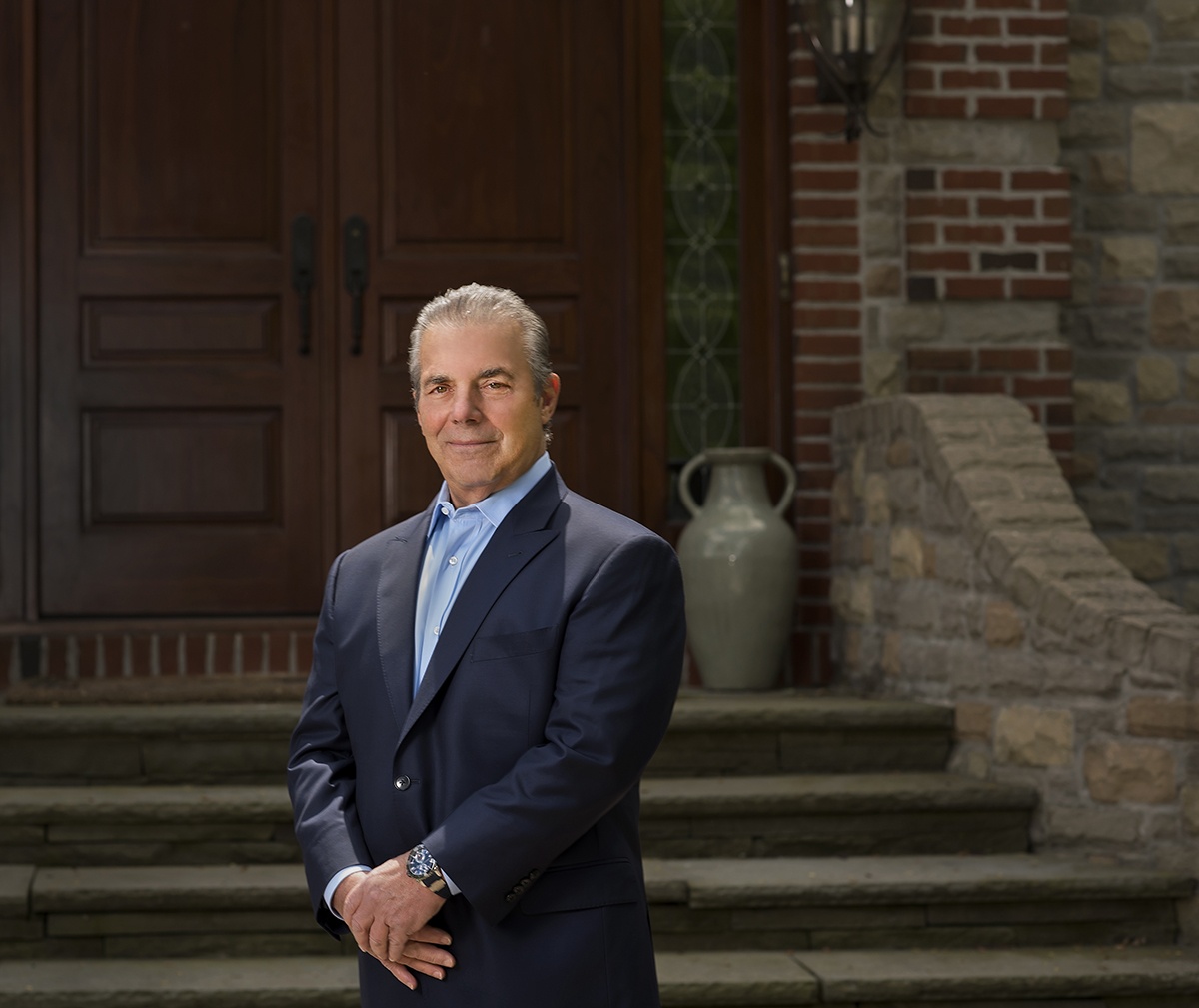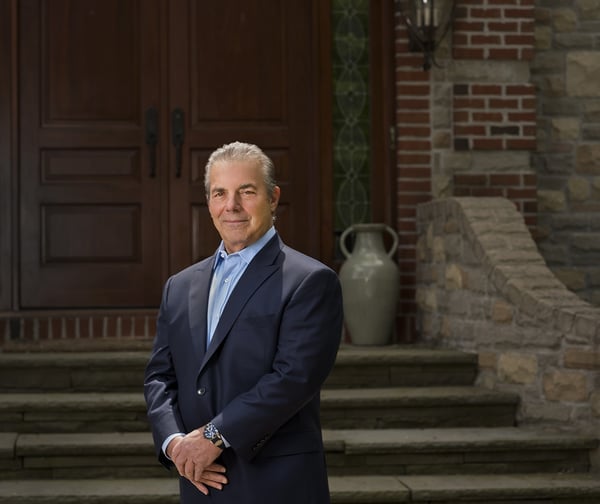Advice on Becoming a Trial Attorney
By: Elizabeth DiNardo, Esq. | Associate Counsel


Advice on becoming a trial attorney from Joseph DiNardo, Esq.
As all lawyers practicing today will tell you, the legal community is not immune from the ever-evolving world of technology and constant, demanding communication. The challenges of becoming a successful trial attorney today have intensified at a rate that lawyers practicing just twenty years ago couldn’t have fathomed. Attorneys looking to start their own firm in the current climate must not only be good lawyers, they must market themselves as a brand through diversified media platforms. Today, an advertisement in the phone book is both antiquated and ineffectual.
In 1979, when Joseph DiNardo, Esq.—founder of Counsel Financial—started his own successful personal injury law firm, the legal landscape was drastically different. Reflecting back, Joe says that attorneys didn’t have to worry about a lot of 21st century pressures. “It was more about having a passion for the law than being a savvy marketer of your own name. Referrals from other attorneys were de rigeur and lawyers rarely moved from one practice to another.” These days, to stay viable in a highly competitive industry and stand apart from all other plaintiffs’ attorneys, you must have a strong online presence. All forms of social media have become relevant and law firm websites are now a “first impression” for those seeking legal counsel. Potential clients are searching the web for counsel selection much like the purchase of other commodities. Funding the costs of marketing and social media are as essential as the payment of rent and other overhead, even for the “greenest” attorneys just beginning their legal careers.
That said, it is also important to pause and consider what nobler notions we had as aspiring attorneys. Joe encourages lawyers to stop and think about why they first decided to become a lawyer. For many in the legal profession, this may mean remembering a time before billable hours were a prominent feature in daily life; a time when we were still innocent and unknowing undergrads with only a vague ideal of what life as a lawyer entailed. Are you doing what you thought you’d be doing? Did you go into the law to literally “have your day in court?” Most attorneys can agree that very few people pursue a legal career so that they can do the majority of the heavy lifting on a case for months, or even years, only to have a partner actually try the case and receive accolades for its success. This is one of biggest problems facing young ambitious attorneys who find themselves in large law firms, caught up in a never-ending grind of document review and research projects. In larger firms, it may take years to see the inside of a courtroom. “Generally, the mantra of complex litigation is that associates are better seen in front of a laptop than heard.” [1]
However, this mindset is counterintuitive to the growth of a good trial lawyer. As many will attest, no amount of training can truly prepare an attorney for what it is like to be in court in front of a judge and jury. To this point Joe states, “no amount of preparation, study or even watching a trial from the gallery will truly give you the experience of being the lead attorney in a trial. That sort of experience is only had when the judge says ‘Mr. DiNardo, you may call your first witness.’” Being able to actively practice trial law is one of the most compelling reasons for a lawyer to leave the relative security of a firm and strike out on his or her own. Joe speaks to this point when asked why he decided to start his own law firm. “A lot of good lawyers who strike out on their own do it because they get frustrated being a cog in a wheel designed to keep revenues coming, but keep attorneys out of court where their craft is best honed. I knew what I wanted to do and I saw early on in my legal career that starting my own firm was the way to do it.”
It is important to remember that with the luxury of being able to take your own cases to trial comes the responsibility of finding cases in general. Joe says, “the best day at your law firm is not the day you get your first settlement check, it’s the day you sign up your next case because that means you’re going to stay in business.”
When starting to think about opening your own firm, it’s crucial that you think about what area of law will be the main focus of your practice. This is all part of the need to form a solid business plan for your firm. Joe stresses that it’s important to be honest with yourself and when it comes to measuring your own success, “you need to think here is what I have on day one and here is where I want to be in five years.’’ You’re on your own now, so you have to be accountable to yourself.”
There are many attorneys out there with large portfolios of single-event cases that fail to stand out to plaintiffs looking for a firm because they seem to dabble in all areas of law, but specialize in none. This is a problem for attorneys looking to thrive and not just survive. It’s important to find that niche area of law where you can really excel and make a name for yourself. Many attorneys have found their niche through the advent of mass torts. In the mass tort arena, attorneys have an opportunity to help multiple plaintiffs with similar injuries in one litigation and have a lucrative practice at the same time. This can bring recognition on a national level as well, as most mast tort litigations are combined in one court under multi-district litigation procedures. Engaging in mass tort practice truly differs from a single-event practice because it may take an attorney his or her entire career to win verdicts and settlements of the magnitude associated with mass tort cases.
However, along with the potential glory of a significant victory come long battles in court—voluminous motions and setbacks that arise when dealing with large corporate defendants who have seemly endless capital to invest in a litigation. As such, it is important to have the proper flow of funds necessary to cover overhead and marketing costs associated with starting a new firm and to keep the daily functions of a firm running smoothly during the litigation process. This translates into having a properly diversified portfolio of single-event cases at various stages of litigation and settlement to keep you going while working on larger mass tort cases. An additional resource may come in the form of capital from a bank or commercial lender. Finding the right financing can be what makes or breaks your new firm. Always make sure that your lender understands your practice, so as to allow flexibility when case resolutions are delayed or flaws arise during the litigation. This permits you to focus on what’s important: your clients and building a career and reputation for excellence.
[1] http://abovethelaw.com/2016/03/proof-that-law-firms-dont-really-care-about-associate-development/?rf=1 (Accessed June 2017)
Counsel Financial provides working capital credit lines exclusively for the plaintiffs' bar in all states except California, where credit lines are issued by California Attorney Lending.




